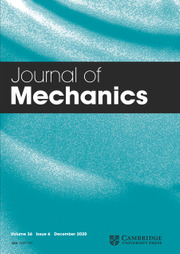Article contents
Design of Water Distribution Networks via a Novel Fractional Succedaneum Shuffled Frog Leaping Method
Published online by Cambridge University Press: 11 August 2015
Abstract
It is known that the design problem of water distribution networks (WDNs) is an NP-hard combinatorial problem which cannot be easily solved using traditional mathematical numerical methods. On the other hand, fractional calculus, which is a generalization of the classical integer-order calculus, involves some interesting features such as having memory of past events. Based on the concept of fractional calculus, this paper proposes the use of a new version of heuristic shuffled frog leaping (SFL) algorithm for solving the optimal design problem of WDNs. In order to increase the convergence speed of the original SFL algorithm, a history of past events is added to the SFL updating formula. Moreover, some memeplexes of the original SFL method are altered to increase the diversification property of the SFL which helps the algorithm to avoid trapping in local optima. The new version of the SFL algorithm is called fractional succedaneum momentum shuffled frog leaping (FSSFL) method. The proposed FSSFL is applied for designing WDNs. Four illustrative and examples are presented to show the efficiency and superiority of the introduced FSSFL compared to the other well-known heuristic algorithms.
Information
- Type
- Research Article
- Information
- Copyright
- Copyright © The Society of Theoretical and Applied Mechanics, R.O.C. 2015
References
- 3
- Cited by

